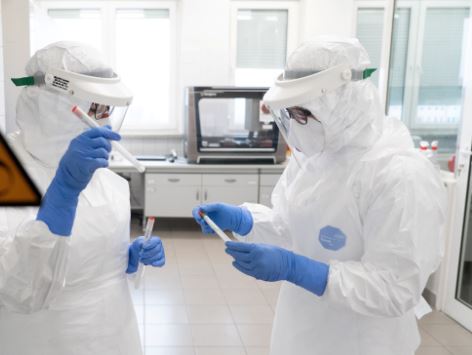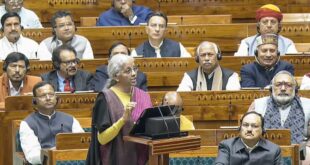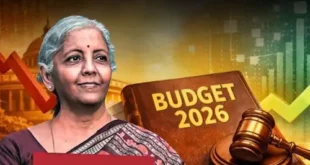Ratan Mani Lal
It is said that extraordinary situation require extraordinary solutions. It is also said that a crisis brings out the best and worst in us.
Both these beliefs are being put to test in these extraordinary times when the entire world is facing the toughest challenge to people’s survival, said to occur once every 100 years. The fast-spreading, deadly infection of corona virus has infected lakhs of people, taken a toll of thousands in a matter of three months and the worst hit are those countries known for their wealth, technological prowess and global political clout. Countries like China, Italy, Britain, Spain, Belgium, France and finally the US have been hit hard by the pandemic even as China claims it has managed to come out of the worst phase.

India has been slow to react because the cases were few and far between in January. The disease was even considered a local problem when first reported from Kerala and then Bengaluru. But now, cases are rising rapidly in almost all states even as the nation grapples with an acute shortage of testing facilities, hospital beds, ICUs and life-saving equipment.
What could ultimately save the day for India is not only a rapid creation of medical care infrastructure but also ramping up of equipment procurement. Testing in India has been very low and this is often cited as the main reason for the low number of positive cases. But on the other hand, widespread testing in India could also lead to apparently healthy people rushing in to get tested, putting great strain on the testing machinery, and the inability to provide beds and treatment to the positive cases in view of the shortage of facilities.
This is where extraordinary solutions could make the big vital difference. While the first week of the three-week lockdown has made many Indian aware of their limits and capabilities, much more will be required in the coming two weeks. Some out-of-the-box solutions that are being discussed and could be implemented soon are:
Additional hospital space
The per capita hospital bed availability in India, according to many sources, is about 1 to 2 beds per 1000 persons, against a requirement of at least 5 beds per 1000. While temporary hospital wards are can be created by the Army, there would still be a limit to this. The innovative ideas being considered include-
- Acquisition of vacant houses and flats of Development Authority and Housing Boards in UP
- Acquisition of hotels in Lucknow and Agra
- Creation of isolation wards in train coaches and other railway property
- Use of vacant educational institution buildings as temporary hospitals.
It is believed that if proper utilisation is made of the above, the shortage could be met to a great extent in case of a sudden surge.
Distribution of essential items
The most difficult problem after a lockdown is maintaining a regular supply of essential commodities without causing crowding at outlets. The UP Government managed to convince all malls, superstores, supermarkets and online food/provision supply services to become a part of this huge exercise. As a result, the supply of essential food items is being managed des[pite some major hiccups on initial days.
A similar system has been put in place for delivery of medicines as well.
Education and teaching
There is a sudden spurt in use of online learning services all over India. These services had started emerging in the country in the last could of years at the start-up level and some have reached the corporate level. But at present, reports from all over the country indicate that people are subscribing to online learning services in a big way.
Not only this, most big universities and private management/technology institutions have also asked their faculty to organise daily online classes. Reports from Lucknow, Bengaluru, Goa, New Delhi and Noida say that professors used to taking classes are rapidly adapting to sitting in front of computers or laptops and delivering lectures, after a virtual attendance is taken of students connected to the class.
Financial activity
Offices and branches of banks, insurance companies, mutual fund companies, financial advisory companies are closed. But business has to go on. People have been receiving messages of their email and mobile phones about all services being available online. Even those people who were reluctant to open the statements on email and used to wait for the good old postal mail, are now learning to open such attachments and are using phones to give necessary instructions.
Even though a large portion of people’s savings and investments has been wiped out, the interest in stock markets remains alive and many people are finding a great opportunity to invest while the stocks are down.
Virtual socialising
With meetings, socialising and get-togethers ruled for weeks, the use of mobile phones and computers for group talk and discussions has become the norm. Use of applications such as Google Hangouts, WhatsApp group video call, Zoom App etc has risen tremendously and in many households, family members and relatives are meeting every day at a pre-decided time to chat, laugh, tease and shout like good old get-togethers. During the group chat, participants prepare food, show recipes, make dishes, eat, drink and show off whatever they wish to.
In all, evenings in many houses have become something to look forward to.
Video clinics
Many doctors and medical professionals have let it be known that patients can send small videos describing and showing the problem areas, and then engage in a video chat. Consultation is thus done and medicines are prescribed, with the prescription being sent digitally after scanning if required. The consultation fee could be paid through the UPI apps. However, many doctors are offering free consultation but only to a limited number of people.
Entertainment overdose
And at the end of the day, idle time means lots of movies, TV series and much else. Since regular TV shows are not showing new episodes since shooting has been stopped in all studios, it is time for people to go in for past favourites on streaming services. Many people are catching up on movies they had planned to see, serials and Web series they had heard about, and repeating favourite shows.
The pressure on Internet use has increased manifold and amid fears of a collapse, streaming services have stopped High Definition (HD) transmission since it uses more Internet bandwidth. But even in SD (Standard Definition) mode, a favourite movie or TV show is worth it.
It is time to relax and not to worry. Confinement to homes can often lead to depression, anxiety and irritability. But as the entire world knows, practising social distancing is one sure way of staying away from a possible transmission of the deadly virus. It is most important to remember that this, too, shall pass.
 Jubilee Post News & Views
Jubilee Post News & Views





